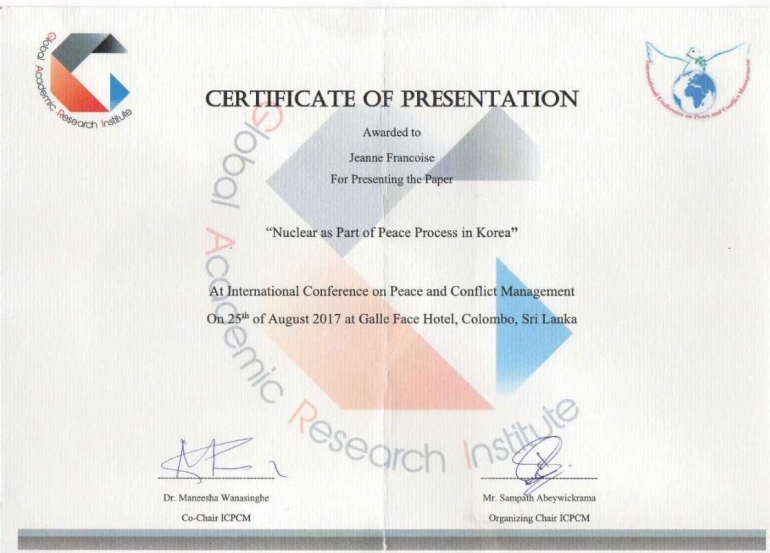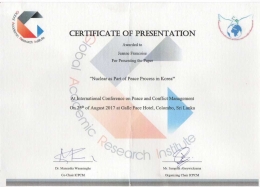Thus, this paper is aimed to give some objectives of analysis about nuclear program in South Korea, based on field research in South Korea in June 2014, as part of obligatory course under full scholarship of Indonesia Defense University, as well as to show an academic hyphotesis about the future of unificaton or remaining-disintegration of South and North Korea.
To analyze the problems, this paper uses the theory of historiography by March Bloch and concept of peace and conflict resolution by Johan Galtung. This paper is highly assumed to be an eye opener for UN Security Council to do some real actions to prevent such conflict and in the more wider scope, this paper is hoped to be a blueprint for Indonesian government to facilitate the power of diplomacy among indonesians who love Koran culture, music, and culinary, so that they understand at what stake level is the Korean defense system.
Keywords:Korea, Nuclear, United Nations
"Nuclear as Part of Peace Process in Korea"
Historical Background
Former Secretary General of the United Nations Kofi Annan said South Korea has transformed itself from a country that receives the greatest support, now has become a major donor countries (Annan, 2012, p.248). South Korea has managed to rebuild infrastructure and social order of the country for 60 years after the Korean War.
The Korean War was a war extension of the two great powers during the Cold War. Dimensions existing military during the Korean War to justify that the Korean War was not just a civil war and was the first military action of the Cold War. Korean Peninsula, which originally controlled by Japan, became the stage power of the two camps.
These two camps then conflicting and politica naturalist, divide Korea into two Similarly, the southern region which is capitalist backed the United States and the northern region of the ideology of the communists supported the Soviet Union and China (excerpted from the book Prihantono, 2013, "Korean War: Conflict of Two Brothers ").
Until now, the two Koreas are still "cold war" and North Korea still commit acts of provocation, both military and non-military to provoke a war between the two countries. The truce that binds the two countries is not a guarantee of both countries will be at peace. So how binoculars future of South Korea? This study is a brief observation the author was carrying out fieldwork Foreign Affairs in Seoul and found interesting observations regarding the future direction of South Korea, through the approach of historiography.
Method of Analysis
This paper uses historiographical approach to capture the vivid moments and the critical stages of South Korea and North Korea history by defining themselves and defining each-other. Historiographical approach is the most appropriate method to recognize both the Korean nation is the history of mentalities. The history of mentalities (L'historie de la mentalit), as part of historiographical apporach, aims to understand the nations for at least 30 years by watching the events of a remarkable history and events of everyday of experienced people (Bloch, 1988).







